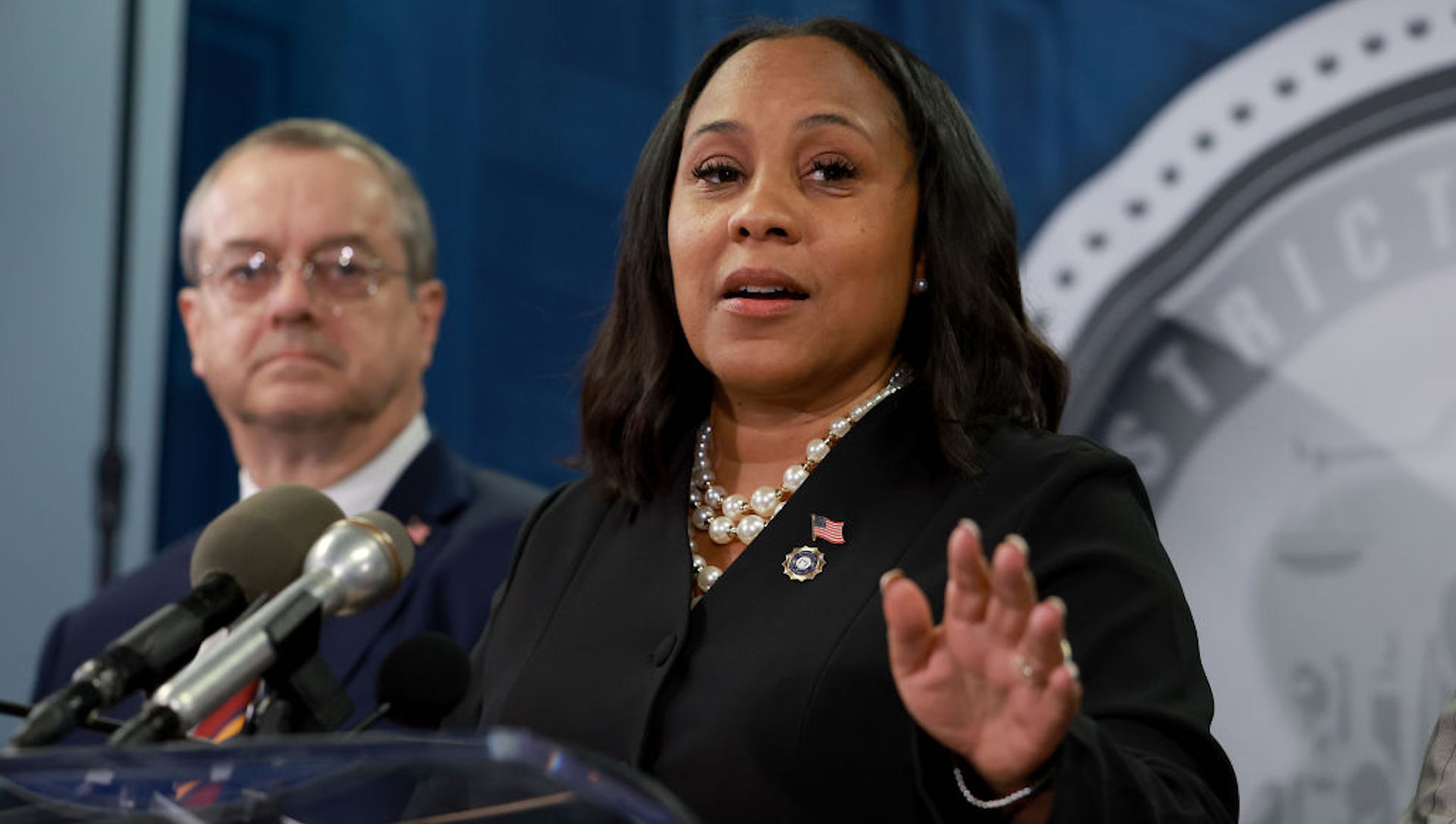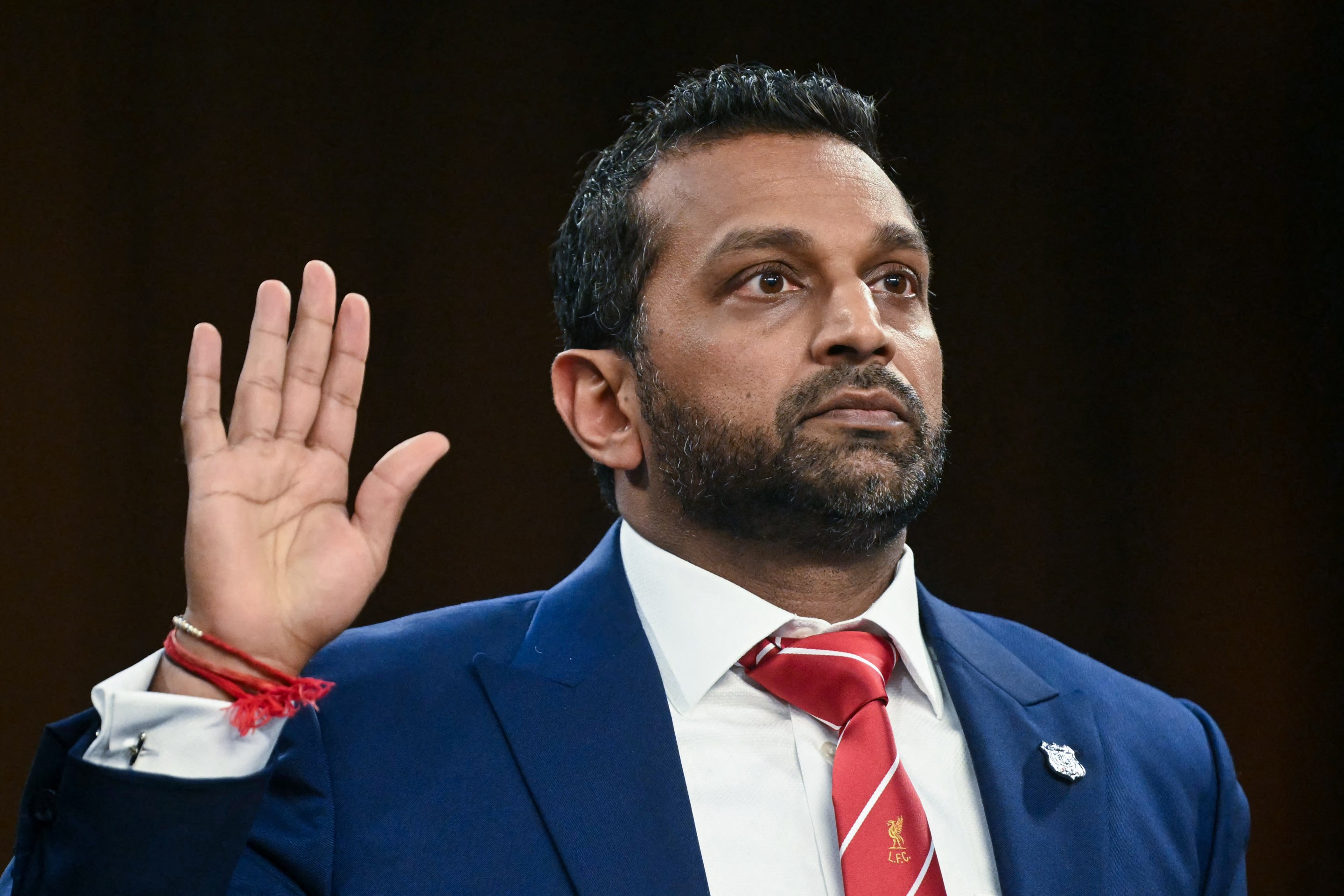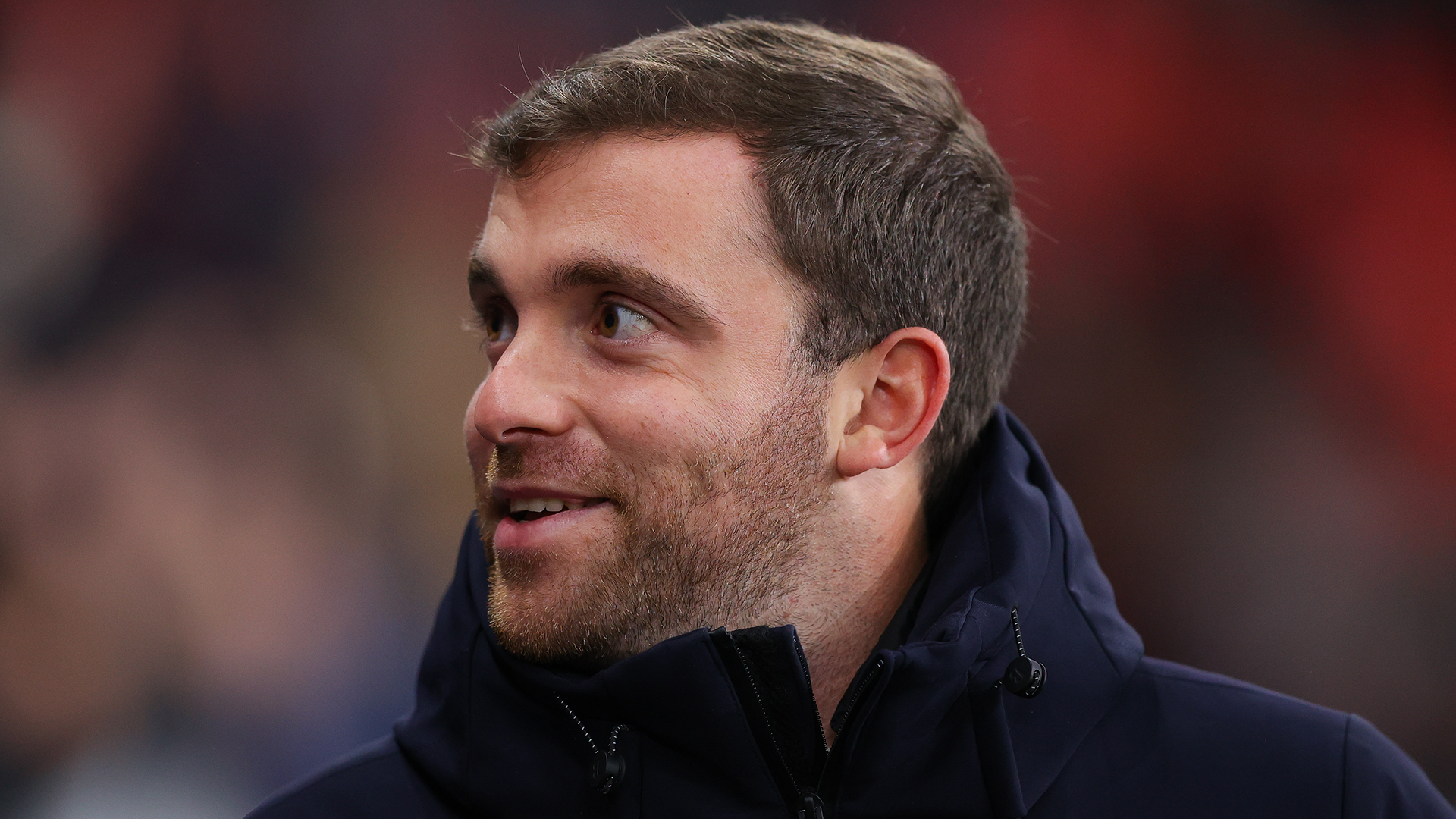This story was initially published by The Lever, a reader-supported investigative news organization.
On May 9, 2022, Martinez Arnold—better known as the rapper Lil Duke—flew to Atlanta from Los Angeles. After landing at Hartsfield-Jackson Airport, he went to the home of his longtime collaborator, Jeffery Williams, better known as the superstar Young Thug.
Arnold and Williams grew up minutes from each other in southeast Atlanta. The two have been together since the outset of Williams’s illustrious career; Arnold has said he sees Williams less as a friend and more as a brother. While Williams is an extravagant, singularly strange musician, Arnold has always been a more workaday presence. (One endearing lyric: “I’m always on the road / just like a Uber, man.”) He’s a lovable sidekick.
On that May afternoon, police raided Williams’s home and arrested Arnold and Williams. Alongside 26 others, they were indicted by Fani Willis, the Fulton County District Attorney, who alleged that YSL—a rap group and record label created by Williams—was in fact a criminal organization. The indictment stated that Arnold’s participation in YSL amounted to a violation of the Racketeer Influenced and Corrupt Organizations Act, or RICO. The penalty for violating RICO in Georgia is a prison sentence between five and 20 years.
Willis has become a nationally recognized name thanks both to the YSL case and a concurrent RICO case: the prosecution of former President Donald Trump on election subversion charges. The Washington Post proclaimed Willis’s actions in the latter case could “save democracy.” But defense attorneys working the YSL case say that as Willis is embraced by the national media for her pursuit of Trump, the local people caught in her legal system—people like Arnold—are left harmed.
The national media’s fixation on the Trump case has further lionized the role of the American prosecutor—and boosted the archetype of “the prosecutor politician,” a mainstay of both major political parties. That lineage includes everyone from former New York City mayor Rudy Giuliani to former New Jersey Gov. Chris Christie (R), former Attorney General Jeff Sessions, U.S. Special Envoy for Climate John Kerry, Sen. Amy Klobuchar (D-Minn.), and Vice President Kamala Harris. All built their political careers in part off their work as prosecutors.
Jed Shugerman, a law professor at Boston University, coined the phrase “the prosecutor politician” in 2017. According to his research, the position of prosecutor has increasingly become a “stepping stone for higher office” with “dramatic consequences in American criminal law and mass incarceration.”
As he's underlined, “About 95 percent of criminal cases are resolved by plea bargain in America, with only the thinnest of judicial supervision. The public official that has the most discretionary power over any individual’s life undoubtedly is the prosecutor.”
To The Lever, Shugerman added, “Every time I see a prosecutor, I have this question: How much are their decisions shaped by their ambitions?”
Fani Willis first came to prominence in 2014. Then an assistant district attorney in Fulton County, Willis acted as lead prosecutor in a RICO case against a group of Atlanta public school teachers and administrators who’d allegedly conspired to cheat on standardized tests.
One of the defendants in the case, Shani Robinson, has described Willis as the “ringleader” of a “lengthy theatrical production” filled with “absurdities” that “the media ate up.” Robinson also called the case a “witch hunt” in which some of her fellow teachers were pressured to offer “false accusations.”
The Fulton County district attorney’s office did not respond to The Lever’s request for comment.
Six years after the case, in the summer of 2020, Willis was elected district attorney. Via her current crop of RICO investigations, she has far eclipsed the attention she garnered with her teachers indictment.
Charging a large number of defendants is a common practice in RICO prosecutions, even though a prosecutor will often have one central figure they’re targeting. (In the YSL case, it’s Williams. In the election tampering case, it’s Trump.) The strategy is simple: pressure defendants into agreeing to deals in exchange for information that is damaging to that central figure.
Trump’s charges in Fulton County stem from his attempts to overturn the 2020 presidential election results in the state of Georgia. So far, four of Trump’s co-defendants have pleaded guilty, further boosting Willis’s case against the former president. (Coincidentally, the list of co-defendants includes one famous former prosecutor-turned-politician: Giuliani.) In the YSL case, Fulton County is alleging that Young Thug was the head of a street gang that committed crimes ranging from drug dealing to murder.
Both cases focus on crimes that are evidently extremely serious. Both are also reminders of the wide leeway that RICO grants prosecutors to charge and pressure people into plea deals.
As journalist Piper French recently recounted for The Drift, RICO has long since mutated away from its original usage—as a mafia killer—to become a legal tool used to prosecute relatively powerless and disorganized groups ranging from a group of neighbors in a Bronx public-housing complex to protesters fighting Atlanta’s “Cop City.”
As one former federal prosecutor told French, RICO “imposes liability” on a defendant “even if that person never went to a crime scene or never pulled the trigger himself.” RICO also regularly carries an implicit racial bias: A study published in the Michigan Journal Of Race And Law found that 86 percent of federal RICO cases “involved gangs that were affiliated with one or more racial minority groups.”
The YSL case in particular illuminates the cynicism that is elemental to the work of ambitious American prosecutors seeking high-profile, media-bait cases. When indicting someone in order to extract testimony, prosecutors accept that they may cause collateral damage. For Arnold, that included both jail time and crippling reputational injury.
And according to his lawyer, the initial plea bargain offer from Willis’s office roughly amounted to this: In exchange for your freedom, we need you to incriminate your lifelong friend.
In a video call from her Georgia home, where children’s photos dot pristinely bright white walls, defense attorney Ashleigh Merchant explains her client Martinez Arnold’s tortuous path out of the YSL case. Despite pressure from Willis’s office, Arnold refused to accept a deal in which he provided information on anyone but himself.
“He was facing so much time in jail and he wasn’t getting out on bond,” Merchant says. According to her, the question Arnold faced was, “Are you willing to say what [Fulton County wants] you to say in order to get out? He wasn’t. He fought back. He was strong in his convictions.”
When alleging that a defendant has violated RICO laws, prosecutors list predicate, or underlying, offenses. Legally, they are referred to as overt acts in furtherance of the criminal conspiracy. For Arnold, as with many of the other defendants, the indictment listed lyrics and Instagram posts. (“MARTINEZ ARNOLD… did pose for a photo released on social media flashing a YSL gang hand sign, an overt act in furtherance of the conspiracy.”)
The indictment also listed several incidents of gun possession and gun violence from about a decade ago and for which Arnold had already pled guilty and been sentenced to probation.
“Imagine: You pled guilty, you were sentenced, you served your time,” Merchant says. Then Fulton County alleges the acts were done “in furtherance of a criminal scheme” and is able to revive long-since settled charges. “How do you defend against something that you’ve already been convicted on?” she asks. “That you’ve already plead guilty to? It’s unconstitutional.”
Merchant filed a motion to dismiss the charges on the basis of double jeopardy—the Fifth Amendment clause that states “no person can be convicted twice of the same offense”—but the motion was denied.
When they first started working together, Merchant and Arnold did not discuss a plea bargain. “We spent a lot of time and money” preparing for a lengthy trial, Merchant says. Arnold comes from a tight-knit family who suffered with him through the stresses of the case; his mother was present at all of his court appearances. Then, after multiple co-defendants negotiated deals, Merchant reached out to Fulton County, heard they were open to a deal, and began negotiations.
The process took about a month, as many of Willis’s prosecutors in the district attorney’s office took turns attempting to squeeze more information out of Arnold.
“There was a lot of push and shove,” Merchant says. “And our plea almost didn’t happen.” At the end, she says, “it was very, very close” to falling apart … It wasn’t necessarily a guilt or innocence thing. It was ‘How much can you give us? We’re only going to give you this deal if you give us this information.’”
Throughout, Merchant says, Arnold was adamant that he was “not going to admit” to things he didn’t do—or point the finger at other defendants.
Out of the 28 original defendants in the YSL case, only one was granted bond and released from pretrial detention. Since their arrests in early 2022, many of the defendants have been held at the Fulton County Jail, an institution with a notorious history of abuse and loss of life. This July, after one particularly horrific death, the Department of Justice opened an official investigation into the jail.
As one local activist said to Atlanta Civic Circle, while “Fani Willis is chasing Trump,” in Fulton County Jail, “people are dying on her watch.”
Merchant says that keeping YSL defendants in jail indefinitely is part of Fulton County’s strategy. “I don’t know that [Arnold] would have taken a plea if he had been out on bond,” she says. She also points out that many of the defendants who were denied bond were the same ones given probation.
“The conditions of probation—not to violate the law, not to intimidate witnesses—they’re the same as bond!” she says. Positing that a defendant is too dangerous for bond and then granting that same defendant probation is “such crap,” Merchant adds. “Just be honest and say we’re keeping you in jail because we want you to plead!”
The YSL case will be extremely expensive. As Willis focuses on her celebrity defendant, less attention will be paid to the day-to-day work of the district attorney’s office, Merchant argues. “There are a lot of people in the Fulton County jail that are sitting there” on pre-trial detention “and their cases have not been charged,” she says.
A 2022 ACLU report found that the Fulton County Jail is egregiously overcrowded. If the YSL case leads to more people being incarcerated in Fulton County Jail without ever having been convicted of anything, that would only exacerbate an already dangerous situation.
Willis has said the YSL case is part of her crusade against gang violence and its deleterious effect on Fulton County’s youth.
To her critics, the argument that Willis is fighting to keep Fulton County safe rings hollow when considering just how much taxpayer money she’s spending—and just how that money could possibly be better spent elsewhere.
“I find it disingenuous,” says Anastasios Manettas, a defense attorney involved in the YSL case. “They’re spending so much money, and that money could clearly address the issue in social service ways: housing, rent, health care, education, therapy.”
Manettas represents Miles Farley, a streetwear clothing designer and one of the original YSL defendants. Farley is charged with an alleged murder that Manettas says he had no involvement with. Manettas also says that Fulton County offered Farley probation in exchange for testimony, a deal Farley rejected in order to pursue a full acquittal.
Clearly, Manettas is not an unbiased voice. But his experience defending Farley has led him to believe that Willis indiscriminately cast a wide net when bringing the YSL indictment. That allegation is backed by the history of the case so far. The indictment named 28 defendants; after a series of deals, severances, and dropped charges, only seven remain.
Due to those multiple defendants and that sprawling indictment, the YSL case has already dragged on for a year and a half since its defendants’ arrests, through pre-trial motions and jury selection. The actual trial has not even begun.
“It’s about the allocation of resources,” Merchant says. “Can you take up a judge, defense lawyers, and everybody for this long of time? The expense is insane.”
Martinez Arnold eventually pled guilty to two charges: conspiracy to violate RICO and participation in criminal gang activity. The underlying acts were the weapons charges from a decade ago.
In the movies and the airport paperbacks, a defendant “flips” by revealing voluminous criminal activity. But in the YSL case, that’s not what’s happening. Merchant says Arnold did not provide any new incriminating information. She also doesn’t believe Arnold’s plea deal will help Fulton County in their prosecution of Williams. “I would be shocked if they used him at all,” Merchant says. “He did not plead to what they needed him to plead to.”
But even just by pleading guilty to crimes to which he’d already plead guilty—and thereby implicitly stating that YSL is a criminal organization—Arnold provided Fulton County prosecutors with more potential fodder as they build their case against his friend Williams.
Merchant says the process has been “really stressful” for Arnold. “There were a lot of people saying, ‘You had to have snitched to get out,’” she says. “And he wants people to know the truth. But at the same time, he doesn’t want to do anything to undo the deal.”
Now that he’s out on probation, Merchant says that Arnold is trying to “rebuild his life—he was out of society for a year.” As part of his probation conditions, he’s on a curfew and has to report his travel. But despite everything, Merchant says, he’s hoping to restart his career.
Publicly, Arnold has been mostly silent. (Through Merchant, he denied multiple interview requests.) His Instagram page—which features a profile photo of him and Williams, laughing happily—currently has just one post, uploaded a few months ago. There’s a few photos of Duke, alone, looking plaintively at the camera. The corresponding caption reads “#YSL4eva.”
In response, he was flooded with comments criticizing him for taking a deal. “you took a plea on yo main man’s,” one commenter wrote. “if it wasn’t for thug we wouldn’t know u … please help me understand bro.”
It’s logical that YSL fans would be upset with Arnold. It’s hard to grasp the pressures he was put under by Fani Willis’s prosecution. Once Arnold was ensnared in the RICO prosecution, he had few good options.
Has that prosecution actually served to protect the people of Fulton County? That’s unclear.
What is undeniable is that the prosecution has served to boost Willis’s national profile. That’s the model for prosecutor politicians: seek high-profile, tough-on-crime cases, gain national attention, and then move on to higher office.
For now, Willis isn’t going anywhere. This summer, she released a fundraising page ahead of her re-election campaign. It boasted that Willis’s goal as Fulton County district attorney is to make “the criminal justice system more fair, transparent, and focused on reducing crime by changing lives.”
In the YSL case, a jury still has not been selected, and there’s no clear indication when the trial will actually begin. Defense attorneys have a long list of complaints about Fulton County’s practices in the case—including that critical discovery has been withheld and obfuscated and that witness lists keep growing. One potential juror, who said he listened to Young Thug’s music, was surveilled by the state of Georgia in the hopes of disqualifying him by proving he lived in a neighboring county.
For Manettas, there’s a fear that the popularity of the Trump indictment will obscure the true nature of Willis’s work. In Fulton County, Manettas says, “People hate Trump so much that they’re not paying attention. Non-partisan civil rights are not being respected—they are being eroded.”






